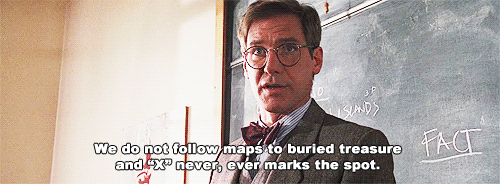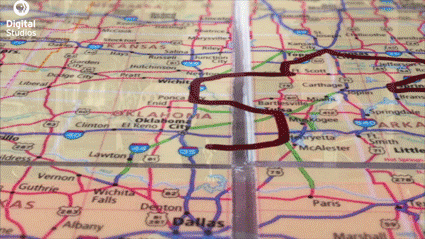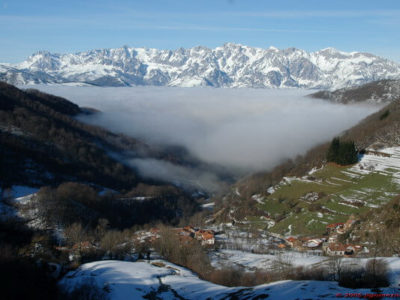Despite what you may believe, geography is more than the study of maps and state capitals. Geographers study our Earth and the relationship between its inhabitants and their environments, covering everything from interpreting and explaining physical and social patterns of the human populace to studying the formation of deserts and other landscapes. If you’re a detail-oriented individual with a knack for technology and a sincere interest in the inner-workings of our planet and its living beings, then the geography major might be for you.
What You’ll Be Doing

As geography major, you’ll get hands-on experience in fieldwork and lab work as well as your typical collegiate dose of homework, papers and exams. Your duties will include carrying out research projects and expeditions in the field, then returning to the computer lab to report your findings. This major lends the opportunity to channel your inner archaeologist in the field by utilizing remote sensing and other dating techniques to study the environment and its past. Geography has a limitless map of material to discover, whether it’s using dating techniques to find the ages of old trees in an urban area or sticking to the basics with a research paper.
Upsides

1. “I enjoyed geography because it gave me a well-rounded viewpoint on human interaction with the environment. Geography gave me a great understanding of the political, social and cultural processes of the world.”–Melanie Meroni, Florida State University Class of 2015, Geography Department TA and GIS Analyst Intern for the Department of Environmental Protection
2. “I enjoyed the fact that what I was learning had real-world practical uses. What I mean by [that] is geography is in our everyday lives. For instance, GPS. This is used not just in our individual lives going from place to place, but it is also put to use in the various parcel delivery services around the U.S. and world. I can give countless examples of everyday use of GPS, but that would take all day.”–Richard Greene, Auburn University Class of 2011, Academic Advisor
3. “Geography allowed me to, and still allows me to, explore a wide array of interests in a way that doesn’t require me to necessarily earn an entirely new degree. My research focus is on environmental hazards, a perfect (in my view) blending of the three pillars of geographic study of human/social science, GIS and physical science. Within environmental hazards I am able to pursue topics related to social justice, seismic systems or computational statistics, just to name a few in which I have explored. The freedom of study and the versatility of the discipline have been incredibly important to me…As far as be employable, the need for people trained in geography in most sectors is growing. I have worked in the private, government and academic sectors in my career up to this point already.”–Ryan Hile, Auburn University Class of 2013, Graduate Instructor for The Center for Natural and Technological Hazards
Downsides

1. “I honestly can’t think of one, I really loved it!”–Melanie Meroni, Florida State University Class of 2015, Geography Department TA and GIS Analyst Intern for the Department of Environmental Protection
2. “The downsides to geography, to me, are limited. However, what is a downside to the major is somewhat concerning. For instance, I feel that most geography majors should really earn a Master’s degree in order to really make a good salary. It’s not like engineering where you can graduate in four years and get a good-paying job. In a sense, you need to be more specialized…hence, more education.”–Richard Greene, Auburn University Class of 2011, Academic Advisor
3. “Geography has some bad PR, unfortunately, which has manifested in two key problems in my experience. The first is that many people have no idea what geography does as a discipline. I am frequently asked, ‘So, what will you do with that degree? Teach?’ The second issue is that Geography is simultaneously a generalized discipline and a highly specialized discipline. This is more of a challenge in academe, but it does manifest in some interesting ways. Ultimately, there are ways to overcome these challenges, and some students may not even face such challenges.”–Ryan Hile, Auburn University Class of 2013, Graduate Instructor for The Center for Natural and Technological Hazards
Career Opportunities

1. Cartographer
As a cartographer, your primary responsibility is to create maps. Fortunately for your hands, the days of crafting maps by hand are long gone. Since it’s the 21st century, cartographers now have advanced technology to design maps painlessly thanks to photogrammetric plotting equipment and digital photogrammetric workstations.
2. Geographic Information System Specialist
A geographic information system specialist’s work revolves around GIS, a computer hardware and software system that stores and analyzes map information. Land developers, real estate agents and municipal officials use this data to make informed decisions regarding the environment.
3. Geographer
With different areas for specialization, including physical geography, culture and economics, geographers study and analyze the expenditure of space in different environments. Using this data, they advise cities and officials about the most efficient use of their land.
4. Environmental Manager
Usually working for the Environmental Protection Agency, your responsibilities include making sure the natural resources in your jurisdiction are conserved by its inhabitants. This job manages the conservation of clean air, unpolluted water and soil.
5. Urban and Regional Planners
For this position, it’s important to be organized, creative and have a knack for problem solving. A typical workday includes discussing ideas regarding land usage with fellow planners, working within budgets and making important and informed decisions in the interest of conserving the environment.



















